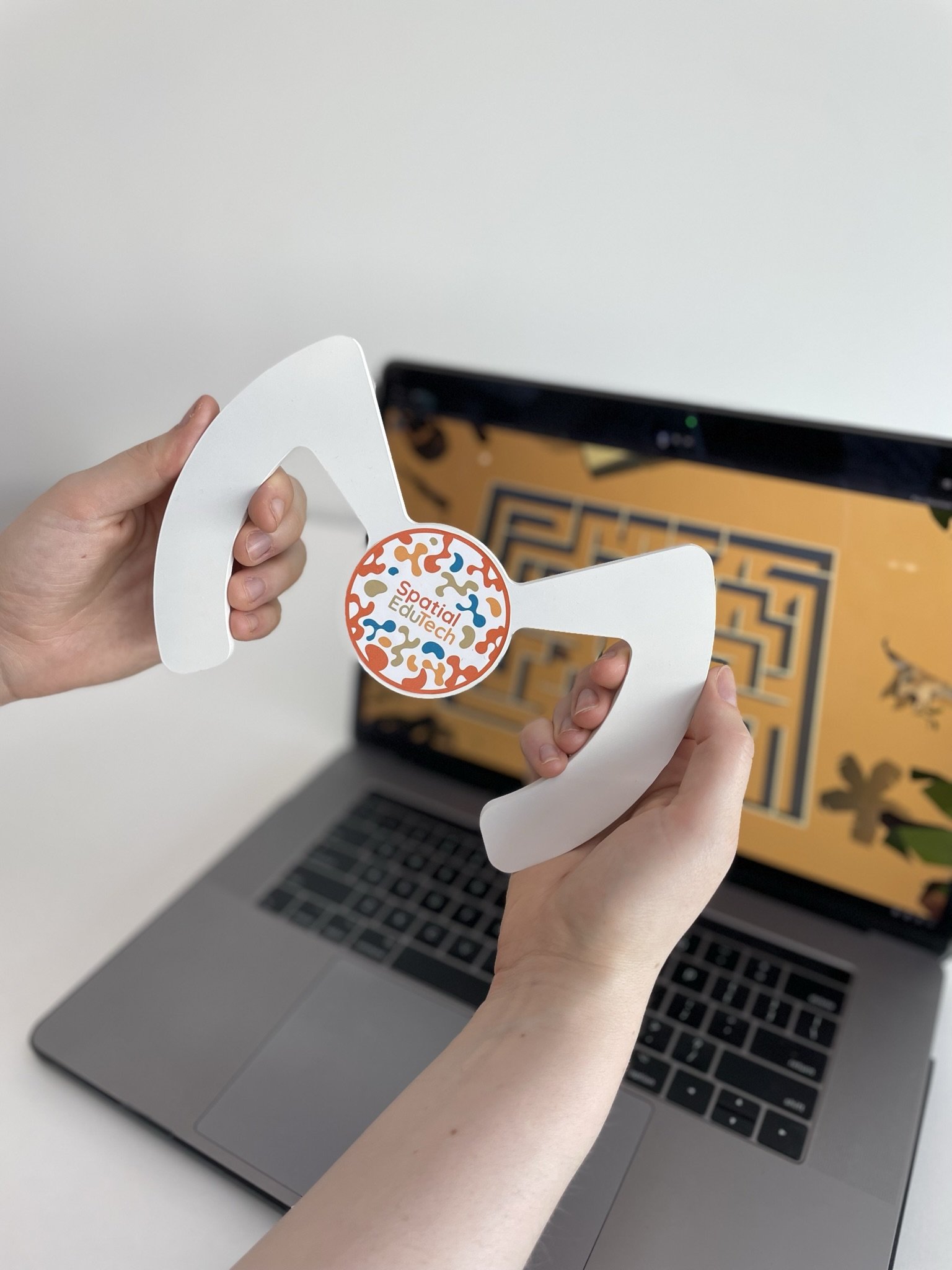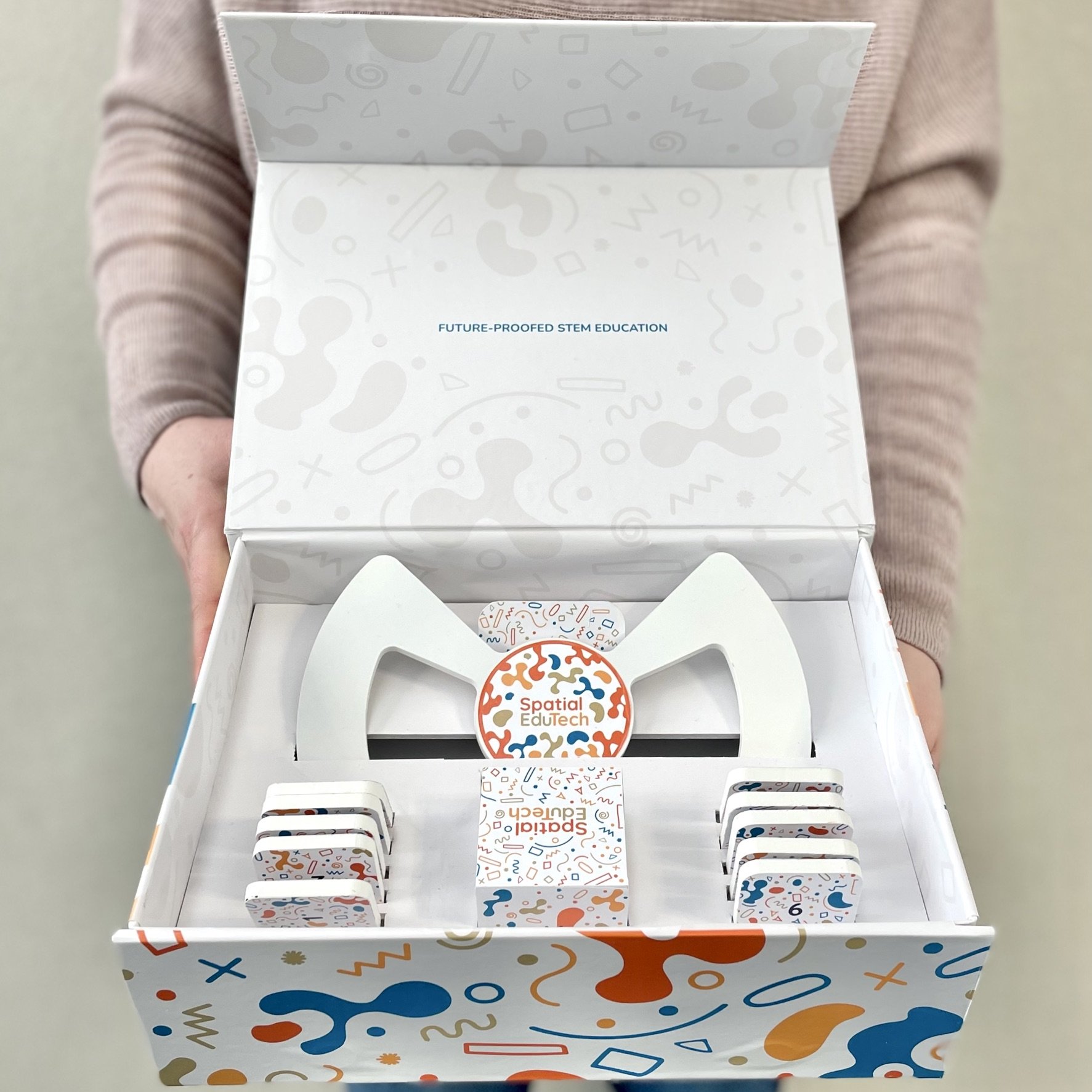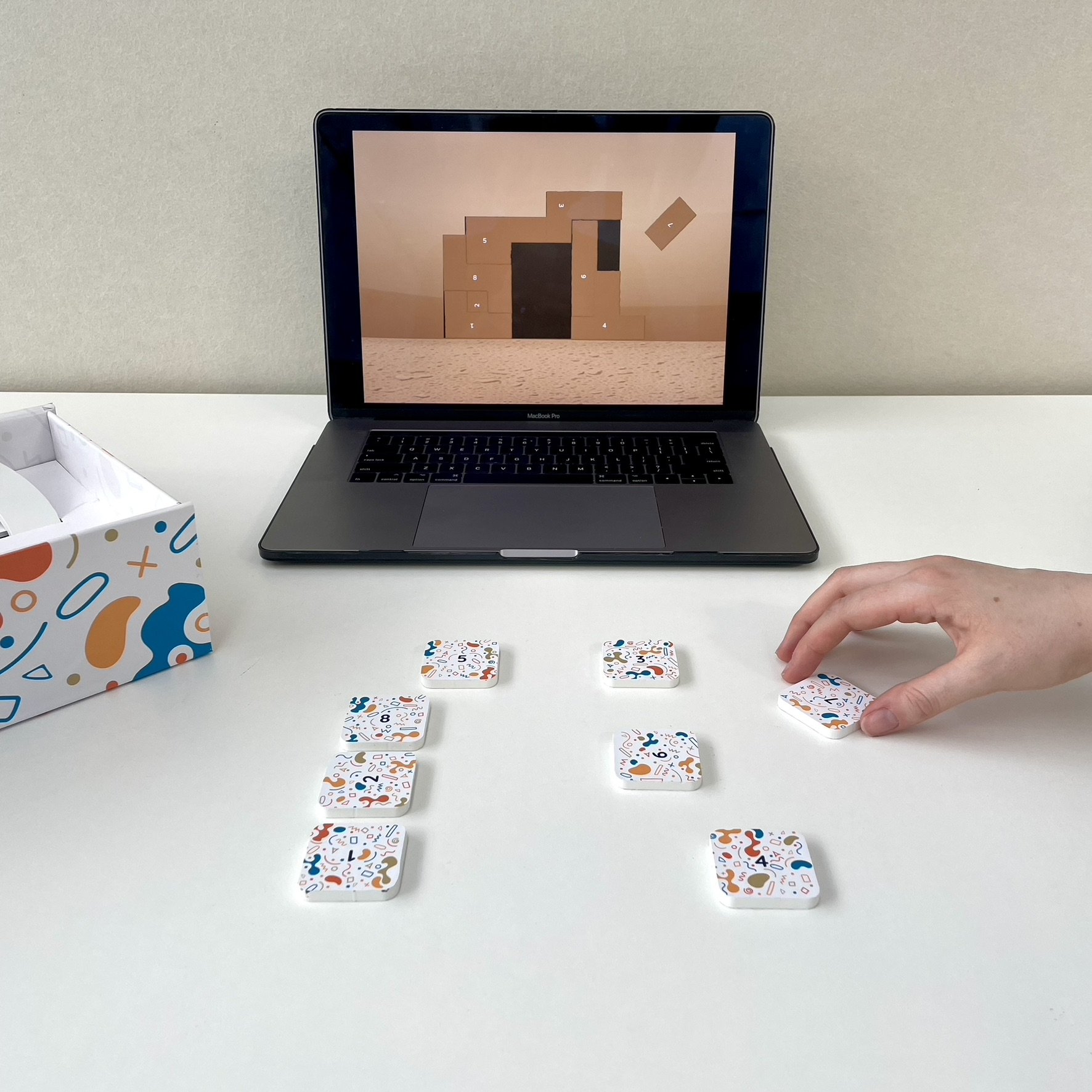Final independent master’s project 2022 | Duration: 6 months
The Problem:
The UK has a severe STEM skills shortage costing the economy £1.5bn annually, which is exacerbated by women comprising only one-quarter of UK STEM workers. An overlooked driver of this discrepancy lies with visuospatial skills--the ability to imagine and manipulate objects in the mind’s eye.
Schools virtually don’t teach them, and girls engage less than boys in the hobbies that train them, but these skills are foundational to success in STEM. Training students can even out girls’ scores with boys’, increase their interest in STEM, and improve all students' grades.
SPATIAL is an escape room-style, visuospatial training game for children up to age 13. Students solve a series of spatial puzzles to unlock keys and relics to progress through historical-themed missions.
Research has shown that hands-on learning is particularly effective at training visuospatial reasoning. However, digital platforms are needed to streamline progressive learning, automate assessment and tracking, and prove the training impact. This project has been an exploration of using technology to blend the physical and digital worlds for an optimized learning experience. Students use real-world objects to move game pieces via computer vision technology.
My Role:
User research
Prototyping: Computer vision (image/object tracking), physical
Graphic design
Research
Game design
UI/UX (Figma)
Human centered design
Presentation
Awards:
Finalist in London Mayor’s Entrepreneurial Prize
Competitor in Imperial’s WE Innovate Entrepreneurial Program
Gallery




Prototype Demo
How it works:
SPATIAL uses the camera on students’ laptops to track physical objects, which serve as the game controllers and correspond to objects on the screen. Students solve puzzles by rotating or moving these real-world objects. This enables students to hold hundreds of activities in just one hand and learn through tangible play.
Why It’s Needed:
After the 2020 pandemic, even resource-poor schools in the UK had access to government-purchased laptops. Nonetheless, these schools struggled to provide students with basic physical educational materials. SPATIAL could empower schools to turn any object into a game controller simply by printing SPATIAL’s custom AR tracking graphics and sticking them to the controller object. This could bring back tangible learning to classrooms that may otherwise be unable to afford physical learning manipulatives.
Project Details
The following slides outline the project background, process, and outcomes.
Exhibitions
SPATIAL was selected for exhibition at London’s Great Exhibition Road Festival of 2023 — London’s annual celebration of the sciences and arts. The festival is presented by Imperial College London with partners including the Natural History Museum, Royal College of Music, Science Museum, V&A, and Royal Albert Hall.
Over 50,000 people attended the festival. At the booth, children were able to play the augmented spatial training game as well as solve 3D spatial puzzles and tangrams.
SPATIAL was also exhibited at Imperial College London’s Spring Show.


































